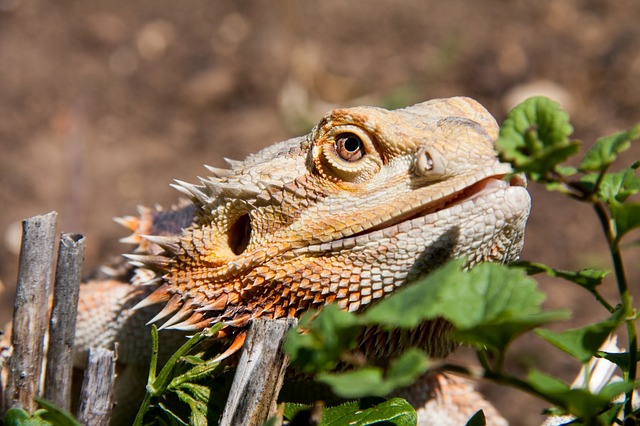Bearded dragons are not difficult to take care of, as these famous reptiles are tough eaters that appreciate devouring a wide assortment of food things. After some time, legitimate diet and nutrition won’t just make your beardie more beneficial yet can likewise help increase its lifespan, action level and help keep its coloring more energetic. Given that bearded dragons need a combination of vegetables and live food to remain solid, their dietary necessities can appear to be muddled and overwhelming to anybody inexperienced with reptiles. Find What Bearded dragons can eat beneath.
Feeding Veggies To Your Bearded Dragons
Plants, fruits, and vegetables are a significant staple of any bearded dragon’s diet. Ingesting these is the number of bearded dragons that get water as well as basic vitamins and minerals.
Anything solidified can lose its nutrition decently easily, so it’s imperative to utilize new vegetables and greens. Bearded dragons will eat most greens and veggies crude, however, if the vegetables are excessively hard, you might need to consider cooking them so they’re delicate enough for your beardie to eat.
There are various plants, fruits, and vegetables that are sheltered and sound for bearded dragons to eat, yet a few top picks include squash, collard greens, ringer peppers, mustard greens, and seedless watermelon. Obviously, it’s ideal to stir up your bearded dragon’s diet now and again. Now and then, adding assortment can increase your reptile’s hunger.
Feeding Insects To Your Bearded Dragons
Bearded dragons will eat up pretty much any insect that slithers before them. Insects are a significant aspect of a bearded dragon’s diet, so it’s important to ensure your bearded dragon is eating the perfect sum, type, and species to remain sound.
MOST LOVED INSECTS
- Butterworms
- Cockroaches
- Crickets
- Dubia bugs
- Worms
- Beetles
- Redworms
- Superworms
However, not all bugs are sound for bearded dragons to eat. It is dependent upon you to ensure they are eating safe insects. As far as tasty insects go, you can’t turn out badly with dark officer fly hatchlings, margarine worms, cockroaches, crickets, Dubia bugs, nightcrawlers, grasshoppers, redworms, and super worms. These insects are ok for bearded dragons and are moderately easy to get.
Hydration For Your Bearded Dragon
Bearded dragons live in hot and dry atmospheres, so they have adjusted to make due next to no water. However, hydration is as yet a significant issue. Your bearded dragon will get the vast majority of its water from plants and vegetables. However, given that your bearded dragon’s tank is hot and dry, it doesn’t take long for the greens to get dried out, so here and there it’s important to gracefully access other water sources.
A few managers put water dishes in their bearded dragon’s nook; however, bearded dragons originate from desert conditions and don’t perceive standing water easily. Indeed, they may not drink from their water bowl. Along these lines, it is regularly more normal for your bearded dragon to absorb its water bowl instead of drinking from it. Soaking is ordinary conduct for beardies and it assists with the assimilation cycle.
You can likewise fog your bearded dragons to keep them hydrated. Misting with new water more than once per day with a splash bottle reenacts rainfall and dew. In nature, bearded dragons will drink the dew drops for hydration, so misting will recreate this climate. You can likewise fog your bearded dragons when they begin to shed. Hydration will help saturate their skin and assist them with having an easier time shedding.
